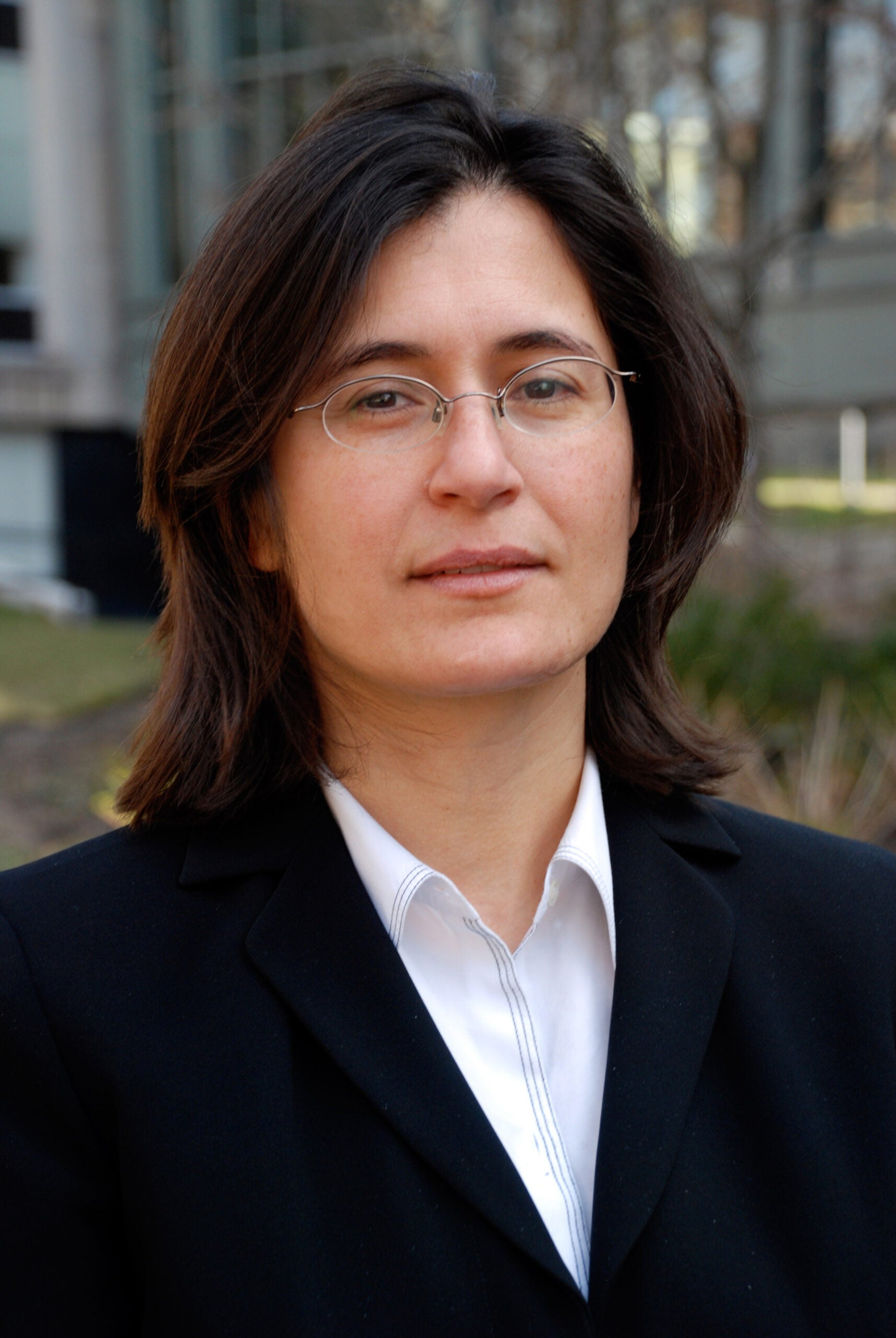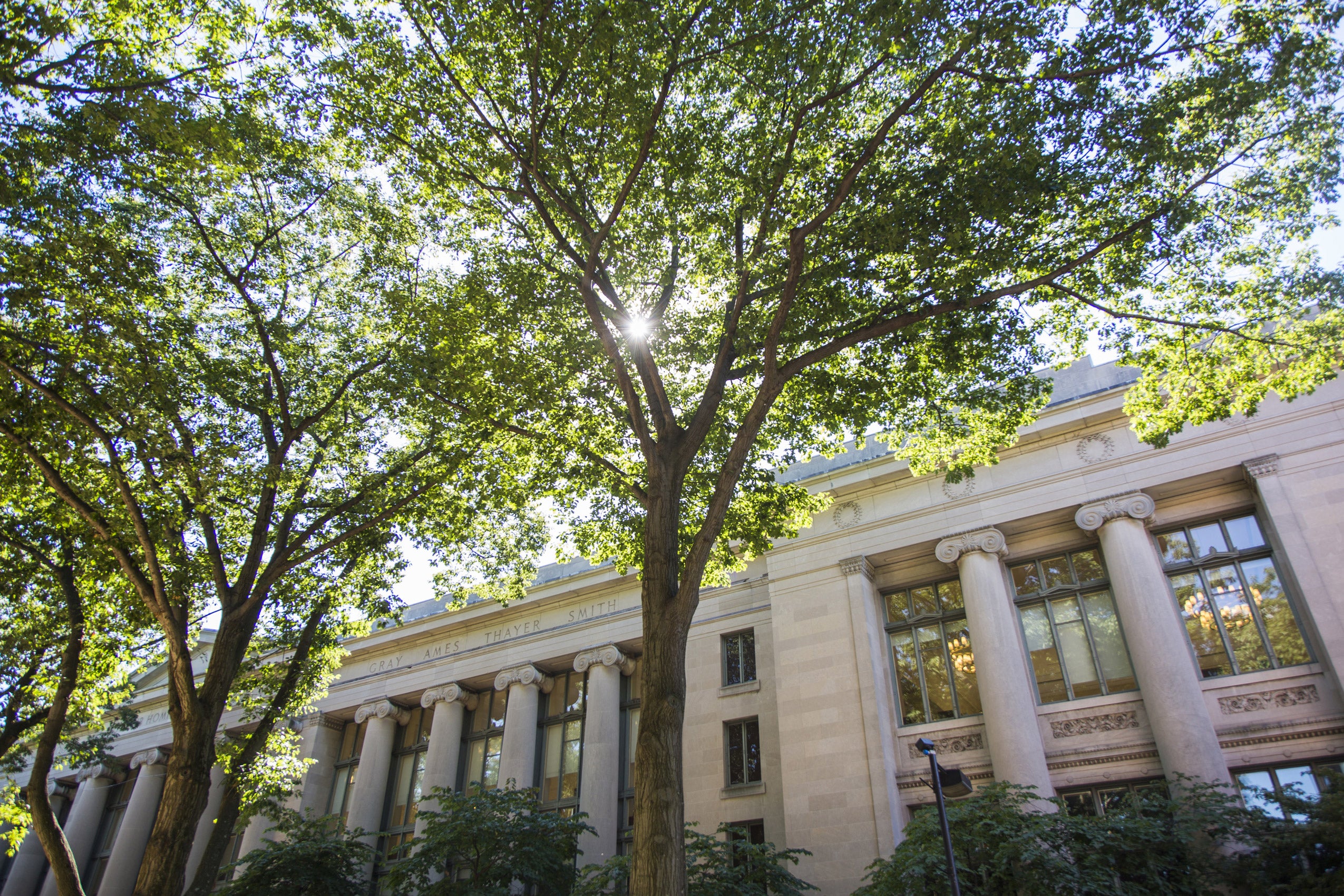People
Alma Cohen
-
How to Get Ideology Off the Supreme Court
April 12, 2022
No one believes Ketanji Brown Jackson, now confirmed to the Supreme Court, would ever vote the same way on an abortion case as her new colleague, Justice Amy Coney Barrett. Their ideologies are too different. As Judge Richard Posner points out, regardless of what they say about their adherence to precedent and the like, judges are fundamentally ideological. They cannot be anything else without a methodological approach to decision-making, such as cost-benefit analysis, that could lead to alternative outcomes. ... Evidence exists that judges’ decisions are not sensible resolutions but are influenced by their ideologies. For example, the legal scholars Alma Cohen and Crystal Yang found that Republican-appointed judges in federal district courts gave longer prison sentences to Black defendants than did Democratic-appointed judges.
-
As Biden vaccine mandates loom, protests for personal freedoms swell. What happens next?
October 29, 2021
... Across the nation, employers, government officials, health care workers and other Americans are continuing to push back against COVID-19 vaccine mandates, even as the death toll has climbed to more than 740,000 people. ... Twenty years ago, researcher Alma Cohen compiled federal and state data proving that mandatory seatbelt laws prompted more people to wear them and saved lives. She sees parallels in the language vaccine-mandate opponents use today. And, she points out, opposition to seatbelt laws has generally faded away. Cohen is a Harvard Law School professor and a faculty fellow at the National Bureau of Economic Research. "Our study identified the significant gains in lives saved that were produced by mandatory seat belt laws," Cohen added. "Mandatory vaccination requirements, I expect, would also contribute substantially to the saving of lives both directly and indirectly."
-
Economic Road Rage
March 16, 2021
In the papers. Some of the academic research that caught our eye this week, summarized in one sentence: … The greater the share of a…
-
More than 1,200 empirical studies apply an index developed by HLS Professors Bebchuk, Cohen and Ferrell
March 11, 2021
"What Matters in Corporate Governance," a 2009 study by Harvard Law Professors Lucian Bebchuk, Alma Cohen, and Allen Ferrell continues to have enormous influence on present-day research
-
Is There Really a Conflict Between Better Corporate Governance and More Competitive Product Markets?
February 5, 2021
The common ownership hypothesis suggests that when large investors own shares in more than one firm within the same industry, those firms may have reduced incentives to compete. Firms can soften competition by raising prices, reducing investment, innovating less, or limiting entry into new markets. Empirical contributions document the growing importance of common ownership and provide evidence to support the theory...Our analysis clarifies widespread misconceptions about the mechanism of common ownership. For example, in a series of award-winning papers, Lucian A. Bebchuk, Alma Cohen, and Scott Hirst have argued that because common owners such as index fund managers have “incentives, which would lead them to limit intervention with their portfolio companies […] it is implausible to expect that index fund managers would seek to facilitate significant anticompetitive behavior.” Our framework explains why common owners have an incentive to remain passive and not to intervene with portfolio companies, so we agree with the first part of that statement. However, it does not follow that this passivity makes the anticompetitive effects of common ownership implausible. In fact, it is precisely the lack of intervention when setting high-powered incentives for top managers or “excessively deferential treatment of managers,” as Bebchuk and Hirst call it that leads to less competitive product market behavior.
-
Stewards’ inquiry
November 17, 2020
Robert Fleming has a claim to be a pioneer of active asset management. His First Scottish investment trust pledged to invest mostly in American securities, with choices informed by on-the-ground research. Fleming saw that shareholders needed to act as stewards in the governance of the businesses that they part-owned. So once the fund was launched, in 1873, he sailed directly to America. It was the first of many fact-finding trips across the Atlantic over the next 50 years, according to Nigel Edward Morecroft’s book, “The Origins of Asset Management”. The art of asset management is capital allocation. It is easy to miss this amid confusing talk of alpha and beta, active and passive, private and public markets...A paper in 2017 by Lucian Bebchuk, Alma Cohen and Scott Hirst, a trio of law professors, found that asset managers mostly avoid making shareholder proposals, nominating directors or conducting proxy contests to vote out managers. Index funds are especially at fault. Their business model is to avoid the costs of company research and deep engagement. The law professors reckoned that the big three asset managers devoted less than one person-workday a year to stewardship.
-
The American Risk and Insurance Association has announced that “Testing for Adverse Selection in Insurance Markets,” a study co-authored by Harvard Law School Professor Alma Cohen and Peter Siegelman, a professor at the University of Connecticut School of Law, is the recipient of its 2020 Robert I. Mehr Award. The award—granted each year to a study published ten years earlier in the Association’s Journal of Risk and Insurance (JRI)—recognizes studies that have “best stood the test of time” in the decade since publication. Cohen’s research has been cited more than 400 times since it was published in February 2010. The study—which evaluates the empirical literature on adverse selection in insurance markets—was selected by the 2020 editorial board of the JRI for this year’s Mehr Award. In 2011, the study also won the association’s Robert C. Witt Award for the best article published in the JRI during the preceding year. Thus, the article was selected as the best article published in 2010 in JRI both from a one-year and a ten-year perspective by the editors of the JRI serving at each point in time. The authors focus on empirical work that seeks to test the basic coverage–risk prediction of adverse selection theory—that is, that policyholders who purchase more insurance coverage tend to be riskier. They argue that the analysis of this body of work indicates that the existence of such correlation varies across insurance markets and pools of insurance policies, further exploring reasons why a coverage–risk correlation may not be found in some pools of insurance policies. The article provides a framework for predicting and understanding when the risk of policyholders and the insurance coverage they purchase are associated. It then evaluates based on this framework the body of empirical evidence on the subject.
-
A study co-authored by Harvard Law School Professor Alma Cohen, has received the American Risk and Insurance Association's 2020 Robert I. Mehr Award, presented each year to research published ten years earlier in the Association's journal that has remained relevant in the decade since.
-
A study by Professor Lucian Bebchuk and Boston University Professor Scott Hirst, “Index Funds and the Future of Corporate Governance: Theory, Evidence, and Policy,” was selected in an annual poll of corporate and securities law professors as one of the ten best corporate and securities articles of 2019.
-
Harvard Law excels in SSRN citation rankings
April 6, 2020
Statistics released by the Social Science Research Network (SSRN) indicate that, as of the beginning of 2020, Harvard Law School faculty members featured prominently on SSRN’s list of the most-cited law professors.
-
More than 1,000 empirical studies apply the Entrenchment Index of professors Bebchuk, Cohen and Ferrell
March 25, 2020
A study by professors Lucian Bebchuk, Alma Cohen, and Allen Ferrell that puts forward a corporate governance index—the Entrenchment Index (E Index)—for assessing the quality of corporate governance in public companies has been applied and used over 1,000 times in empirical analyses as of the end of 2019.
-
Executives of America’s large public companies have long played a role in public policy by advising leaders of both parties — but those corporate chieftains themselves are far more likely to be Republicans than Democrats, a new study shows. In a working paper released this month by the National Bureau of Economic Research, researchers at Harvard Law School and Tel Aviv University ran the names of all individuals to have run a company listed in the S&P 1500 between 2000 and 2017 through federal campaign finance databases, which include contributions to both congressional and presidential candidates as well as party committees. The result: 18.6% of CEOs consistently donated to Democrats, while 57.7% donated to Republicans, with the rest leaning toward neither party.
-
The largest U.S. companies are beginning to pay heed to the demands of investors focused on environmental and social issues, a shift for shareholders long relegated to the sidelines. Oreo cookie maker Mondelez International Inc. last year said all its wrappers would be recyclable by 2025. The move came four years after Parnassus Investments, a small San Francisco-based money manager, and other investors began pushing Mondelez to assess the environmental impact of its packaging. ... The Center for Political Accountability’s push for better political-spending disclosure started in 2003. Proposals to improve political-spending transparency made up the biggest single category of shareholder proposals among S&P 500 companies from 2005 through 2018, partly prompted by the Supreme Court’s 2010 Citizens United decision that ended longstanding limits on corporate political spending. Such proposals accounted for 626 of 5,092 in all, according to an analysis by researchers at Harvard and Tel Aviv universities.
-
A new, first of its kind study tracks the political leanings of CEOs by examining 18 years of political contributions by more than 3,800 CEOs of S&P 1500 companies. The big picture: The chief executives of America's largest public companies are more than twice as likely to lean Republican in their campaign contributions than to favor Democrats. Among big energy companies, CEOs' Republican leanings are even stronger: more than 9 in 10 energy CEOs side with Republicans, and none with Democrats. The study, by professors from Harvard Law School and Tel-Aviv University, classifies a CEO as a Republican or a Democrat if they gave at least two-thirds of their campaign contributions to one party or the other. CEOs that distributed their contributions more evenly between the two major parties were classified as neutral. ...Harvard Law School's Alma Cohen and Roberto Tallarita and Tel-Aviv University's Moshe Hazan and David Weiss analyzed the political contributions to candidates, committees, and parties from 3,810 individuals who served as CEOs of companies in the S&P 1500 index between 2000 and 2017.
-
How Executives Vote With Their Wallets
March 19, 2019
The Business Roundtable, the top lobbying organization for industry in Washington, is often characterized as a nonpartisan or bipartisan organization. It represents more than 200 large companies — from oil giants to tech sweethearts — with more than $7 trillion of revenue and more than 15 million workers of all political stripes. ... Rather than look at party affiliation or public statements, the researchers — Alma Cohen, Moshe Hazan, Roberto Tallarita and David Weiss — looked at the truest measure of political leanings: They followed the money. For the study, to be released Tuesday, they tracked personal political contributions for more than 3,500 chief executives that occupied the corner office anytime from 2000 to 2017. The period covers a two-term Republican presidency, a two-term Democratic presidency and the start of President Trump’s time in office — after he lost the popular vote but won the Electoral College. In other words, on the whole, voters have been pretty evenly divided between the parties in that time.
-
The dark side of diversification
January 24, 2019
The death last week of the founder of Vanguard, Mr John Bogle, offers a timely reminder of the upheaval in the asset management industry brought about by the advent of index investing around four decades ago. Index investing had its antecedents in the development of modern portfolio theory. ...In a similar tradition to Berle and Means, Professor Lucian Bebchuk, Alma Cohen and Scott Hirst from Harvard University suggests that the institutionalisation of stock markets exacerbates the conflict of interest (The agency problems of institutional investors, Journal of Economic Perspectives 2017). In a world of diffuse and dispersed share ownership, institutional investors are reluctant to engage in monitoring in the knowledge that their competitors also benefit from their own time consuming and expensive monitoring activities. Index funds in particular, face weak incentives to engage in stewardship activities that improve governance and value because they bear the full cost of such activities but not the full benefits.
-
HLS faculty maintain top position in SSRN citation rankings
January 18, 2019
Statistics released by the Social Science Research Network (SSRN) indicate that, as of the end of 2018, Harvard Law School faculty members have continued to feature prominently on SSRN’s list of the 100 most-cited law professors.
-
Judges appointed by Republican presidents gave longer sentences to black defendants and shorter ones to women than judges appointed by Democrats, according to a new study that analyzed data on more than half a million defendants. “Republican-appointed judges sentence black defendants to three more months than similar nonblacks and female defendants to two fewer months than similar males compared with Democratic-appointed judges,” the study found, adding, “These differences cannot be explained by other judge characteristics and grow substantially larger when judges are granted more discretion.” The study was conducted by two professors at Harvard Law School, Alma Cohen and Crystal S. Yang. They examined the sentencing practices of about 1,400 federal trial judges over more than 15 years, relying on information from the Federal Judicial Center, the United States Sentencing Commission and the Transactional Records Access Clearinghouse at Syracuse University.






